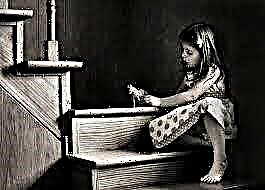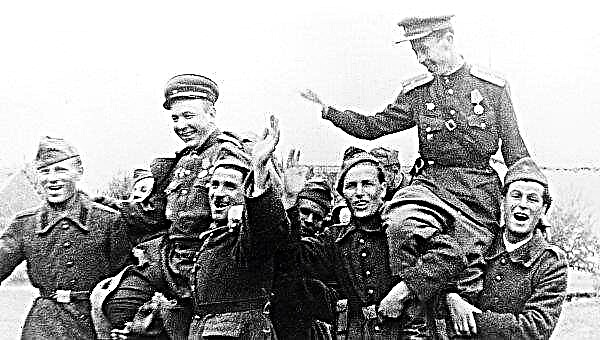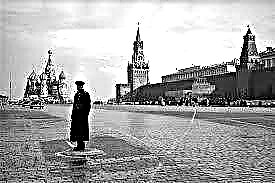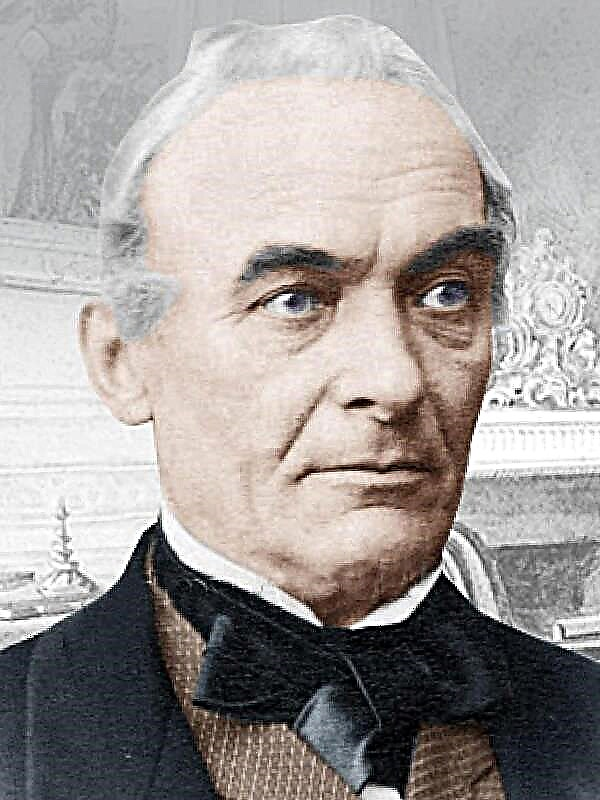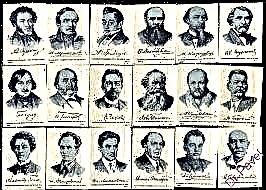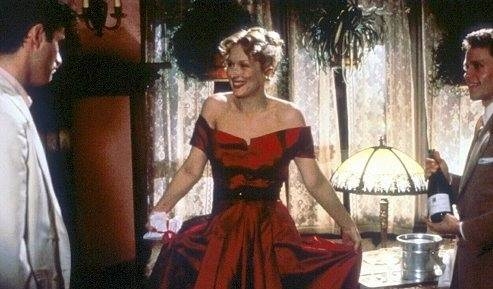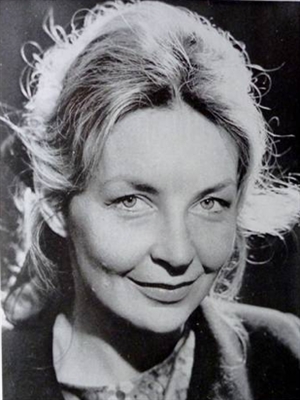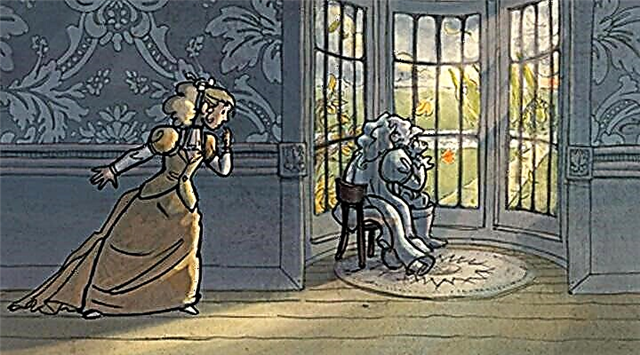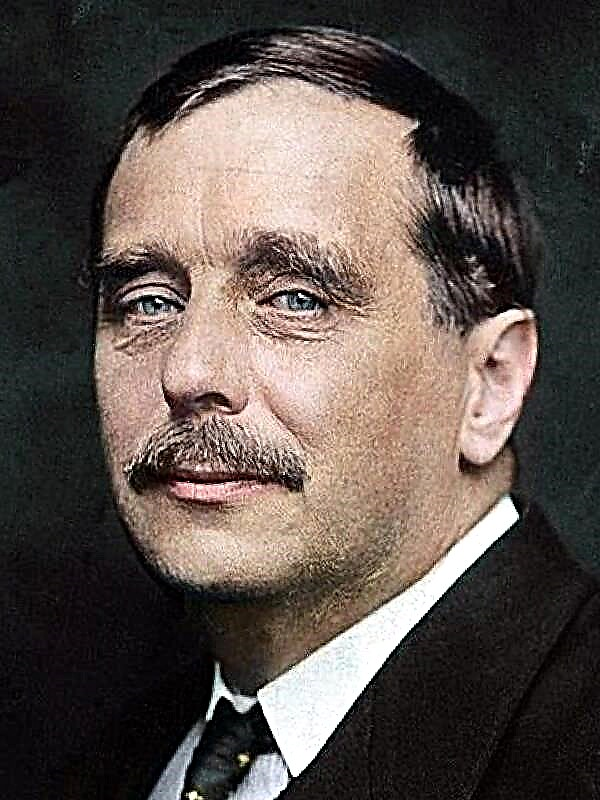The main characters of Henry Lawson's tales are ordinary Australians, mostly people of manual labor. In the story “A hat in a circle”, the author tells of a shearing sheep Sheep Bobra Brasers nicknamed Giraffe. He is a tall guy, about six feet three inches tall. He is clumsy, and his face is brown. He is often seen walking around people with his old hat in his hands. He uses this hat, which his friends nicknamed the "cabbage palm", to collect money for a good deed. So, the Giraffe considers it necessary to help one guy who came to work from another city - he had to pick up wool after shearing the sheep - but he got sick in the first week. He should be sent to a hospital in Sydney, where he left his wife and children. Giraffe's comrades grumble, curse, curse the kindness of the Giraffe, but put money in his hat.
The giraffe is not a local resident, he is a native of Victoria. But in the town of Bourke, where he shears sheep, has long become a popular figure. Sheared often instruct him to keep bets when they bet; he acts as a peacemaker, arbiter or second to please the guys who started a fight. For most children he is for his elder brother or uncle, and all strangers see him as their closest friend. He always helps someone in something. It either persuades the guys to arrange a “dance” for the girls, or it collects money for Mrs. Smith, whose husband drowned in the river on Christmas Day, sometimes helps some poor woman whose husband escaped, leaving her with a bunch of children, or tries to help out a certain Bill, a drover oxen, who got drunk under his own cart and broke his leg. Therefore, everyone loves the Giraffe and, not without pleasure, tells jokes about his hat. Giraffe helped a lot. However, debt is sometimes red in payment. Giraffe has no wife, no children, not just a girl. True, there was one case when, even before his arrival in Bourke, Bob was attracted to one girl in his hometown of Bendigo. She was short, which for some reason especially attracted Bob. But when he asked her bluntly if she wanted to meet with her, the girl inadvertently replied that it would be rather funny to watch her coward next to such a chimney as a Giraffe. The guy took it for refusal and went to Bourke to shear the sheep. Later he received a letter from her, where she scolded him, reproached that he had left without saying goodbye, called him “a terrible lanky idiot” and begged to write and come to her. The day before his departure, the guys found out about this story and stole his hat from Giraffe. The next day, he found her near his bed full of money. The gathering was a record.
“Wanted by the police” is another story about the comradely solidarity of the poor. In the farmer’s hut there are two families of immigrants - only seven people. One night, when it was raining heavily, a farmer read a newspaper article stating that the police were looking for two people accused of stealing sheep and cattle. The inhabitants of the hut sympathized with these two people and wished them all the best. A little later, someone went to the hut and called the owner. It turned out that these were just those fugitives that the police were chasing. They were invited to enter. They were a stout man, soaked to the bone, exhausted, almost a boy suffering from a painful cough. They were dried, fed, poured hot gin, which was cherished as a medicine, and given a little food on the road. Before leaving, the man gave the hostess a small Bible and a bunch of letters and asked to keep them. He said that if he could get out of the difficult situation he was in, he would someday send for them. The farmer saw off the fugitives, showed them the way, and when he returned, he drove the cows onto the road so that they trampled the tracks. In the morning the police appeared and began to suspiciously ask the owners about last night. But the inhabitants of the hut said nothing about the fugitives, and the police left. Five years have passed. The farmer and his wife had one dream: to earn a few pounds to clear and enclose the plot, to buy another good workhorse and a few more cows. One evening, the postman delivered a package to the hut. Inside the bag lay a thick envelope on which the words were written: "For feed horses, for fasting and for dinner." In the envelope they found fifty pounds. It was a huge sum for the inhabitants of the hut, which was sent by the fugitive rescued by them five years ago.
Comradely solidarity is also narrated in the story “Tell Mrs. Baker.” Cattle runner Bob Baker is heading north on a two-year business trip. A narrator named Jack and his friend Andy M’Callock agreed to go with Bob as assistants. During this trip, Bob Baker too often visited roadside taverns and city taverns. In Malgatown, he desperately wrapped up, confused with one barmaid, who, in collusion with the innkeeper, did everything so that Becker was left without a livelihood. He spent on it not only all his own, but also other people's money. When the cattleman, whom Bob worked for, found out about this, he dismissed him, and sent the herd with another herder. The new bonderman did not need helpers, since his two brothers were with him. Therefore, Andy and Jack were settled. But they did not leave Bob alone in a foreign land, because the unwritten law by which they lived did not allow throwing a comrade in trouble. Bob sank lower and lower: he dragged himself through taverns, got drunk, got involved in a fight. Andy cabled his brother Bob Ned. Ned arrived a week later, just a few hours before the death of Bob, who died of a fever. Ned took care of the funeral, and then avenged his brother, great beating innkeeper. A few days later the three men broke up. Ned returned to his room, and Andy and the narrator set off on their return trip. Andy was in great excitement, as he had to go to Mrs. Baker and tell her about the death of her husband. Pitying the woman and sympathizing with the deceased, the friends decided not to tell her the whole truth. On the way, Andy came up with a completely different version of Bob's demise. He told Mrs. Baker that her husband felt unwell when they crossed the border. Near Malgatown he felt very ill. One local squatter took him to the city and placed him in the best hotel, the owner of which knew Baker and did everything he could for him. Ned arrived three days before Bob died. Bob died of a fever, but in the last minutes he was calm and constantly remembered his family. He asked to convey his request to his wife - she and her children should move to Sydney, where her relatives live, who will certainly help her. Ned promised to transport Bob's body to Sydney. After this story, Mrs. Baker a little perked up and thanked her friends for everything that they had done for her and her husband. On the street, Andy and Jack admitted to Mrs. Baker's younger sister, who had come to her from Sydney, that Bob had died from drinking. The girl was grateful to the men for their sensitivity and kindness and promised to expedite the departure of her sister from these places in Sydney.
Most of the stories in the collection are written with extraordinary humor. "Two evening parties" refers to their number. Swampy and Brummi are typical boomers, that is, traveling vagabonds who do not want to work even when such an occasion is presented. In Australia, it is customary to feed such travelers for free and even give them tea, sugar, flour or meat on the road. Swampy and Brummi exert all their mental abilities in order to get more products for the future with the help of blackmail, petty thefts, hidden threats and cunning inventions. But once they had to think seriously about work: their trousers were worn down to holes, and in order to update this important part of the toilet, they had to work hard for two weeks and earn a few pounds. The farmer they turned to said he could only hire one. Brummi and Swampy alternately give each other this opportunity. Not reaching agreement, they cast lots. Brummi goes to work. For two weeks he collects wool from sheep, gives Swampi tobacco and buys him new trousers. However, he does not want to divide the remaining money in half. Swampy considers this unfair, he resents his companion and decides to steal his wallet during a night's sleep. Three nights in a row he tries to find a purse in his pockets and under his pillow, but to no avail. When Brummi snored too loudly, Swampy was wary. Guessing that his companion was only pretending to be asleep, Swampy bluntly asked Brummi where he was hiding the money. Brummy cheerfully replied that under Swampy’s pillow. Such a suspicion and cunning from the side of a friend Swampy can not forgive, and therefore parted with him.

